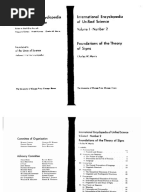Impoliteness In Interaction Pdf
Posted : admin On 13.10.2019

By Derek Bousfield This examine issues the character of impoliteness in face-to-face spoken interplay. For greater than 3 many years many pragmatic and sociolinguistic reviews of interplay have thought of politeness to be one critical explanatory idea governing and underpinning face-to-face interplay. Politeness' 'evil dual' impoliteness has been principally missed until eventually purely very lately. This publication, the 1st of its type at the topic, considers the position that impoliteness has to play via drawing extracts from various discourse kinds (car parking disputes, military and police education, police-public interactions and kitchen discourse).
The examine considers the triggering of impoliteness; explores the dynamic development of rude exchanges, and examines the best way such exchanges come to a few type of solution. 'Face' and the linguistic sophistication and manipulation of discoursally anticipated norms to reason, or deflect impoliteness is additionally explored, as is the dynamic and infrequently hotly contested nature of an individual's socio-discoursal position.
Politeness and impoliteness in interaction Jonathan Culpeper. What is politeness? The case of ‘please. 1 Impoliteness and taking offence in initial interactions. Michael Haugh. School of Languages and Linguistics, Griffith University, Nathan, Brisbane, QLD 4111.
Read Online or Download Impoliteness in Interaction PDF Best language & grammar books. The English language has gone through many sound adjustments in its lengthy background. A few of these adjustments had a profound impression at the pronunciation of the language.
A few those major circumstances of language evolution are as a rule grouped jointly and termed the 'Great Vowel Shift'. Those adjustments are usually thought of to be unrelated to different, comparable long-vowel adjustments happening a bit previous. Additional resources for Impoliteness in Interaction Example text. Such an approach seems to fit my argument of what happens with expectations of how face will be constituted and the reality of face constitution. Indeed Goffman’s and de Kadt’s ideas here fit perfectly with army training, kitchen, and police training data (amongst others). I should note in all these extracts the preponderence of public ‘dressing downs’ (a formal or informal activity type in which one or more individuals receive a reprimand) of interactants who have, or are perceived as having committed an infraction.
This, clearly, isn’t the case. It is evidenced, amongst many other things, by the fact that British culture is often viewed, perhaps simplistically, as a negative-face culture, and the US, just as simplistically, a positive-face culture.
This very observation which has been made by many researchers over the years must inevitably lead us to considering these two identified aspects of face as being of different strengths and, thus of differing importance in different cultures. This isn’t to say that the desire to be approved of, in some direct or peripheral way is non-existent in UK culture, nor that the desire to be free from imposition is simply non-existent in US culture (far from it, in some sections), rather that (traditionally at least) the desire for freedom from imposition and the desire for approval are more important, respectively, in these two cultures (with all other things being equal).

Again, Observer’s Paradox aside, the benefits here, (as in the use of the televised extracts), are that not only can the verbal data be viewed, transcribed and analysed, but the visual aspects, the non-verbal paralanguage, such as gestures, facial expressions, and even physical contact between interactants can also potentially be viewed and interpreted through analysis. However, a significant and inescapable issue here is the way in which Camras (1977) collects or rather, generates data.
As with Brenneis and Lein (1977), in creating arguments between children, we must acknowledge that their arguments were not naturally, but rather artificially induced.
Meaning In Interaction Pdf
. Part of the book series (PEPRPHPS, volume 4) Abstract The “impoliteness strategy”, a kind of parallel to the “politeness strategy”, has dominated research for decades and is still current. However, the notion of a “strategy” is poorly understood and rarely defined. This chapter begins by critically examining this notion, as it is used in linguistics. It argues that in politeness studies it has been overly focused on the idea of a rational linguistic means of achieving certain ends or goals.
Cars The game features a host of 70 licensed race cars, most notably the Williams F1 car from the 2005 season (Williams FW27), as well the full DTM, V8 Supercars and IRLgrid from their respective 2005 seasons. If the player gets all 177 cups, they unlock all the bonus championships and bonuses. TOCA. If a player wins a cup, they then unlock bonus championships to play in Free Race mode only.
That a strategy might also involve the coordination of communication through routine and shared linguistic means that are recognised within particular communities seems to have been largely overlooked. The next part of this chapter outlines Culpeper’s (1996) taxonomy of impoliteness strategies, and follows with a critical review. It notes that most problems and controversies lie at the more abstract level of the “superstrategy”. Two particularly controversial areas are discussed. One is the relationship between directness and impoliteness strategies, and especially whether there is some correlation with the degree of offence caused. The other is the relationship between impoliteness strategies and context.
Social Psychology: Goals In Interaction Pdf
The final part of the chapter outlines a more recent bottom-up framework of impoliteness strategies or triggers, and one that, echoing Terkourafi’s (e.g., 2001) work on politeness, places impoliteness conventionalized for particular contexts of use at the centre.